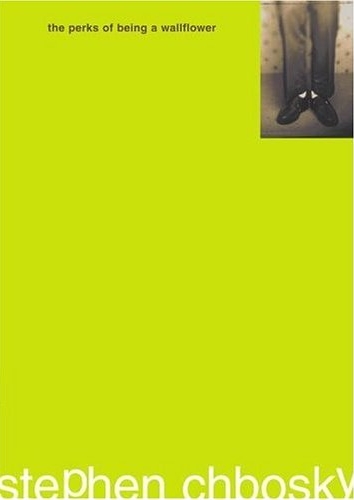
Dear friend,
Re-reading The Perks of Being a Wallflower is like holding a tin can on a string, and the other end is pulled taut by myself in 9th grade. I think that’s when I first read it, as that would be around when I was dating the girl I think of when I try to remember the time period. I don’t even remember where I got my copy, which probably means it was from the ASPCA thrift store downtown. It was a good way to spend a day, especially when you were borderline broke and in a town full of a perfectly wholesome nothing to do. Besides, I didn’t know any of the kids that had pot, and I’m still convinced my parents are psychic and would have known if I ever got high anyway.
My dad told me once that I wasn’t a very good liar. I can’t really dispute it.
The Perks of Being a Wallflower was harder for me to get into this time around. Something about the way it’s written makes Charlie sound like more a little kid than he should. His words are a little too stilted, a little too roundabout, and he seems just a tad too awed by what he sees. But I suppose back then we were all pretending to be cooler than we were, or just not talking much. Unless you found the right person, and Charlie clearly has in the anonymous person he’s writing the letters to.
(Incidentally, if I were to get those letters I would be more than a little worried about the kid on the other end of them. But I’d certainly keep reading them.)
Once I got past the narrative style, though, everything started to click back into place for me. Iperks of Being a Wallflower is still an insanely evocative book, even more than ten years later. It captures a pervasive depression and feeling of disconnect that can be hard to find in YA books, especially now. I fully admit I’m probably just reading the wrong ones, but most only capture the dramatic gestures, not the sad little moments. I think that’s why this book resonates with me so much. It shows the whole picture of a life, not the movie version. Somehow, it recalls all of those feelings I had back then up to the front of my mind, in full color. I think of first dates and growing up and all of the friendships I had that were just so weird when they started and then became some of the best friends I’d ever have. Of making a mix tape for a boy I only realized years later I had a huge crush on, and writing a poem for a girl. Of being the quiet sad one in the friend group. (I still am, but that’s another story.) What it’s like to not be able to drive. What it’s like to have your best friends’ house feel like the ultimate clubhouse, at least as much a home as your actual house. What it’s like when your parents try hard but don’t understand. What it’s like to not quite understand your family, even though you love them.
The thing is, is that a lot of those feelings age particularly well, which I believe is part of what gives this book its longevity, at least for me. I still don’t totally understand my family, even if I come at it from a different angle than I used to. I miss those friends, and remember that good times I had with them even if we’ve gone our separate ways since then. I remember what it was like to be keeping my sexuality at least partially under wraps, and how I managed to discover it and rediscover multiple times before it actually clicked in as part of my identity.
This book makes me remember, to steal a quote from Buttercup Festival, “those strange, irretrievable days.”
It made me so reflective and introspective I wrote this. Oh god.
Parts of it do feel dated, so I wonder what a kid reading it today would think of it. I belong in that relatively narrow slice of the pie that had cassette tapes when they were young and iPods before they graduated from high school. The references are sometimes on the very edges of my childhood/middle grade/young adult experiences, but they’re there. I remember landlines and not being able to get in touch with people when they were out of town. I don’t think any of these are dealbreakers for a modern young adult reading this book, but I do think that having some direct experience with them gives the novel a much stronger sense of space than it would have otherwise, and I think the book is stronger, more resonant, for it.
That’s just the thoughts I’m having about halfway through the re-read. I could tell you more about it, friend, but I’m worried I’ve rambled on too long and it would be boring.
Love Always,
Charlie Ian
Comments are closed.